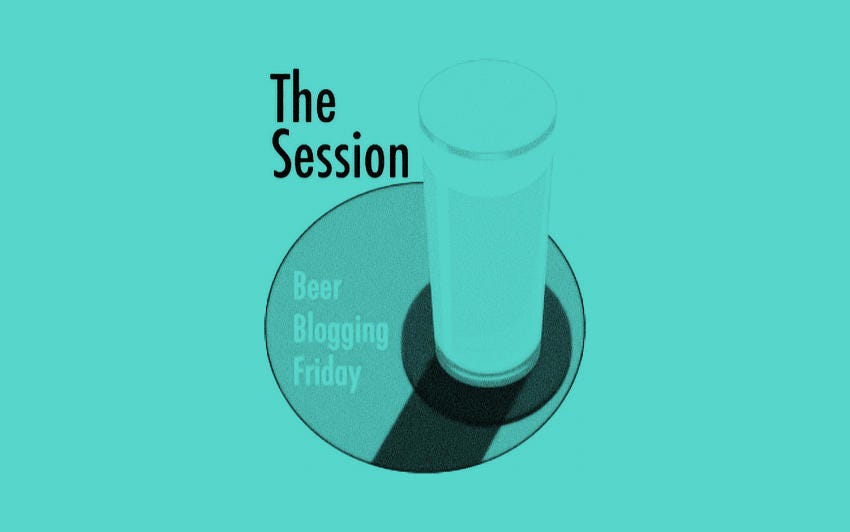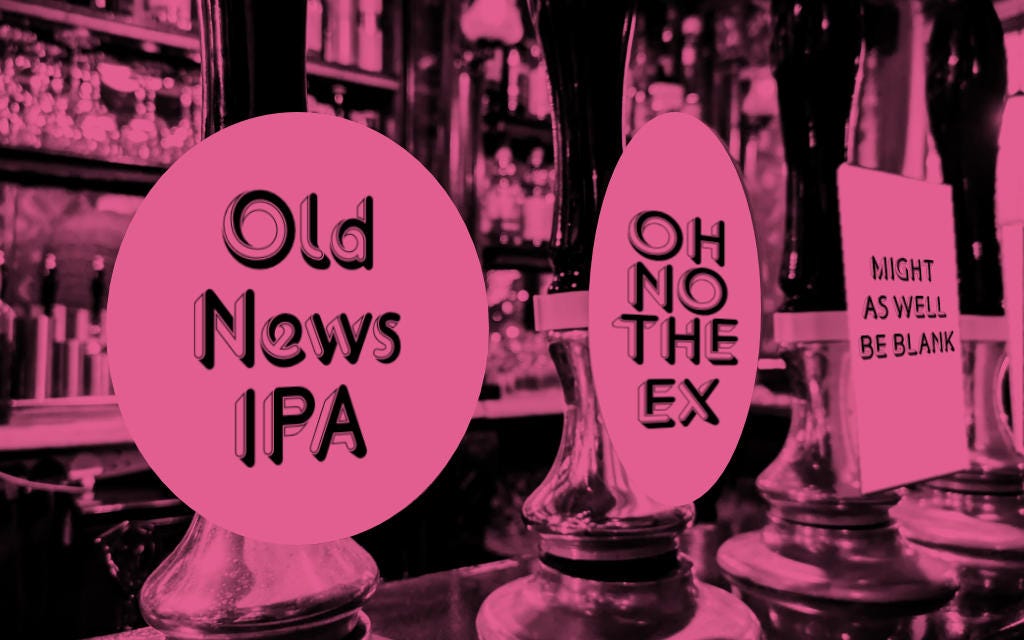The soft brewery boycott: disenchantment and ennui
Or, how beer drinkers can simply ignore a brand to death without ever quite hating it.
You don’t have to boycott a beer brand if you just stop buying it. We’re not boycotting BrewDog or Magic Rock (Keystone, formerly Breal) – we reserve the right to drink their beers. But, in practice, we don’t.
This is partly the fickleness of the craft beer drinker. As many brewers have lamented over the years, drinkers are always chasing something new and exciting.
As many British craft breweries approach their 20th birthdays, and as their founders advance into middle age, they begin to feel like relics.
Especially if you first encountered BrewDog as a toddler, with memories of 330ml bottles of Punk IPA in Mum’s hands as she dandled you on her knee.
We know, we know – 2011 is only five minutes ago. Except it’s not, and there are people serving you in the pub who were at nursery when Magic Rock was founded.
Beyond the ennui of novelty-seeking drinkers, however, there’s also the emotional response to how breweries change.
There was a time when seeing a Magic Rock pumpclip in a pub would have prompted an excited “Ooh!” and probably a social media post to alert the other nerds.
We try not to get emotionally attached to breweries or beer brands but, still, we spent a ton of time researching Magic Rock for our book Brew Britannia, and drank their beer whenever we could for the best part of a decade. Pathways formed in our brain connecting their name and logo with pleasure. We connected.
But at The Kings Head in Bristol last Sunday, seeing one of their beers on the bar just made us feel sad – like bumping into an ex, or a friend with whom you’ve parted ways.
Those associations we’d formed between Magic Rock and joy have been replaced by feelings of melancholy, regret and – if it’s not too dramatic – betrayal.
Magic Rock was an organic, human thing. Then it became a commodity, a brand and a set of assets, sold to a multinational. Now it’s just the brand and part of that least inspiring of all things: an investment portfolio.
At best, the feeling it triggers is emptiness. Who is behind this beer that we know, or might care about? What does it stand for? What does it mean?
There’s no sincerity behind it. Its eyes are dead.
“What does it matter if the beer tastes good?” Oh, maybe it does. But when we came to order, that pump clip might as well have been invisible, while there were other, more interesting options in sight.
Our companions in the pub, who follow brewery ownership and takeover news less closely than us, liked it well enough – even though they’re more militant than us about buying local, and supporting indie businesses.
Another beer we don’t boycott is Doom Bar (Molson Coors). We’ve had good pints of Doom Bar, occasionally, in the right pubs, and we know Martin Taylor sticks up for it.
Still, last weekend, we walked into a pub and it was the only cask ale they had on offer. There was nobody behind the bar which gave us time to decide we couldn’t be bothered and move on.
Embarrassingly, the landlady then pursued us up the street to ask if everything was OK.
“We just didn’t fancy Doom Bar, that’s all.”
We just didn’t fancy it. We couldn’t be bothered. This is not the language of strong feelings but of indifference, shading negative.
Now if it had been Bass… Wait, why would that make a difference? It’s a brand owned by AB-InBev, brewed for them by somebody else. We suppose it’s because Bass, at least, has a long history behind it, and some romance, and a place in local beer culture.
For more on a related subject check out this post from last May about the danger of being a ‘quite good’ brewery.

The Session: everyone is welcome
We’re hosting The Session this month, of which more in a moment.
The Session was a great thing when we were just getting started in beer blogging. Back then, when such things mattered, it was a great way to get bigger blogs to link back to you.
It was also a great way to make yourself known in a global community (terms and conditions apply) that relied on blogrolls and blog dialogue more than on social media.
It faltered for a few reasons, we think:
People ran out of ideas for topics.
Topics became too clever-clever, and too esoteric.
Beef between bloggers (seriously) meant that people didn’t always join in.
Twitter made blog posts feel old fashioned, long and boring.
The same people ended up hosting too often – no fresh blood!
We don’t know how long this present revival will last. Until the chain breaks, we suppose, and no host steps forward.
(As of now, there’s no host for March 2025. So maybe it’s just a two-month run. Like a 6-episode revival of a 1990s sitcom where all the actors look weird.)
Anyway, it’s worth taking part for the pleasure of taking part. These days, you don’t have to be promoting a blog, or trying to build a personal brand. Joining is fun because joining in is fun.
Just check out our post explaining this month’s topic and write something, somewhere in response.
You’ll see that there are already a bunch of responses in the comments, for starters.
Where to buy 20th Century Pub
We got an email from a librarian this week asking where they could get a new copy of our 2017 book 20th Century Pub.
One answer is: direct from us.
We have copies for sale, signed or unsigned, at £12 including postage and packing in the UK. Email us at contact@boakandbailey.com to sort it out.
The bulk of the book is about the period from around 1900 to 2010, so it’s not as if the contents have become out of date. And we post free updates every now and then, too.
If you’re interested in why pubs are like they are, or what they used to be, it’s a good book to have on your shelf.
A point we’ve made often is that it’s a book that rewards ‘dipping’. You can pick it up and read one chapter, any chapter – or even just a page or two. You’re bound to learn something you can drop as a “Did you know…” in the pub with your pals.
On the blog
In the past month or so we’ve posted quite a bit, on varied topics, at various lengths from short-and-sweet to too-long-didn’t-read.
First, there were some observations on the continued retreat of pub grub from the scene, prompted by a request for advice on which Bristol pubs might be good for dinner. This triggered some interesting comments and at least one post in response, from Paul Bailey (no relation).
It also led a bunch of people to say, boringly: “Good. I’m happy with a pie or a bag of crisps.” We understand the long pushback against everything turning into a gastropub but it does feel to us as if something useful is being lost – and something that made going out to eat more accessible, and affordable.
We probably should have saved this for our Session topic: if you have time to visit three pubs before you die, which would they be? There were lots of responses to this in various places but The Rutland Arms in Sheffield came up a lot. And, as it happens, that’s the subject of an article at Pellicle this week, by Ashleigh Arnott.
At the end of January, we wrote a to-the-point post in response to Alan McLeod’s chosen topic for Session #143: what’s the best thing to happen in beer since 2018?
Another short post was our response to some particularly good pints of ESB in a West London pub, written in a hotel room and posted from a phone: “...it tasted like the inevitability of one pint too many, like the Holy Grail, like the White Whale, like a miracle in progress, like being 25 again learning for the first time what beer could really be..”
The next post was anything but brief, being a 2,000+ word digestion of copies of the Courage brewery magazine The Golden Cockerel from the early 1960s. The specific focus was on the pubs they built in England during this period, and the rituals that surrounded their launches. Sometimes, posts like this are as much about getting information into places where everyone can access it online, and highlighting the existence of original sources for those who have the time and inclination to visit archives.
There were also weekly news, nuggets and links round-ups and footnotes on those for Patreon supporters.
Also on Patreon there were write-ups of the best beers we had each week. (More or less. Sometimes it’s a fortnightly round-up.)
That’s it, that’s your lot, until next month.
Cheers!
Jess & Ray








Had exactly the same experience in a Covent Garden pub recently. Popped in, saw a single line of Doombar, explained to the staff why I was leaving, and popped out again.
Luckily in London you are rarely far from a pub serving something interesting (or just not Doombar, Pride or Landlord) at a sensible price.
Found a cracking sub £6 pint of Sussex Best round the corner.
The soft boycott resonated with me. I never see Bass in London, but like yourselves, I would make an exception for it (but never for BrewDog).
I guess my exception is Hophead, even though it’s Asahi now and has had its ABV lowered for tax reasons. I don’t suppose I’ll be much use when the Blackshirts knock on the door.